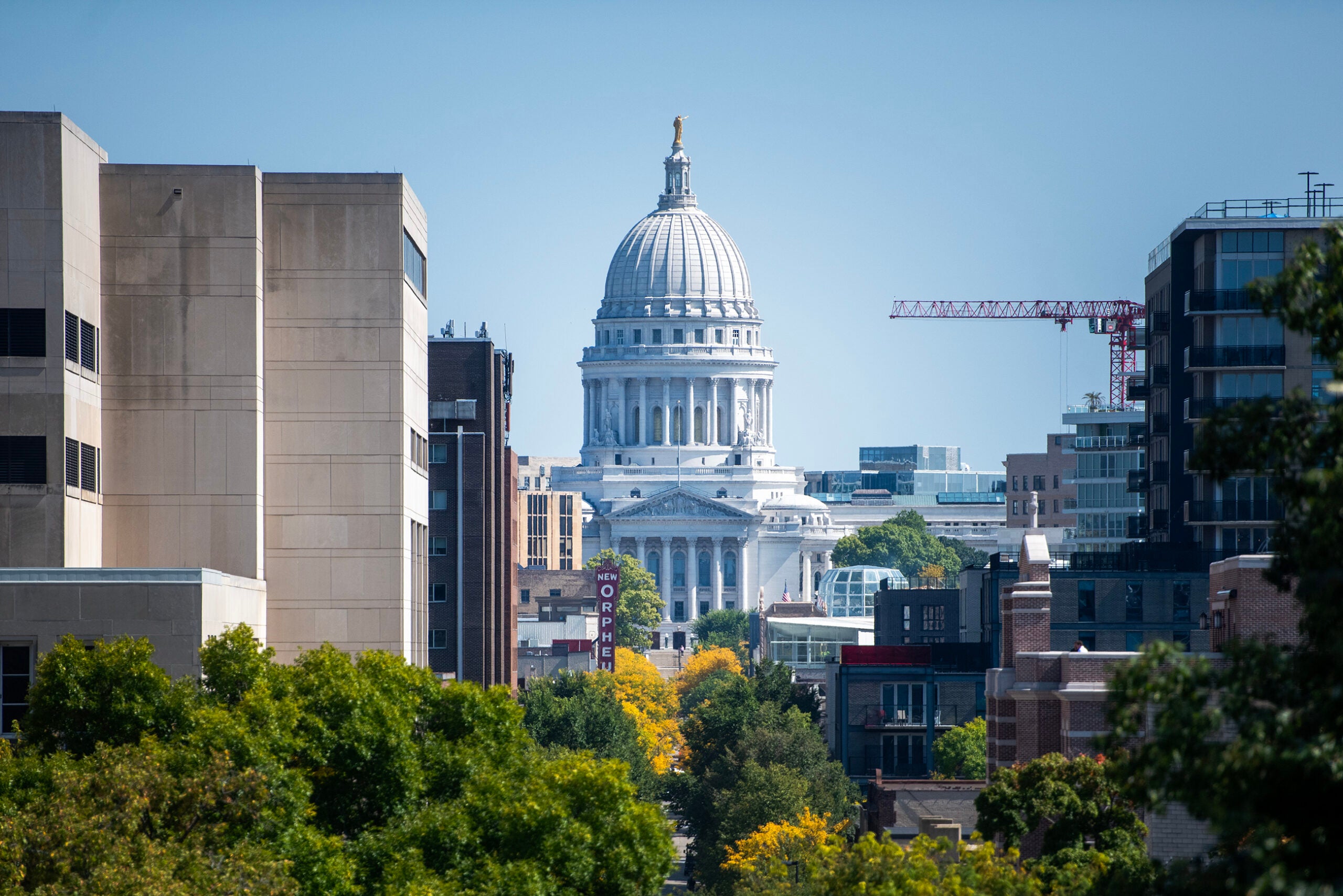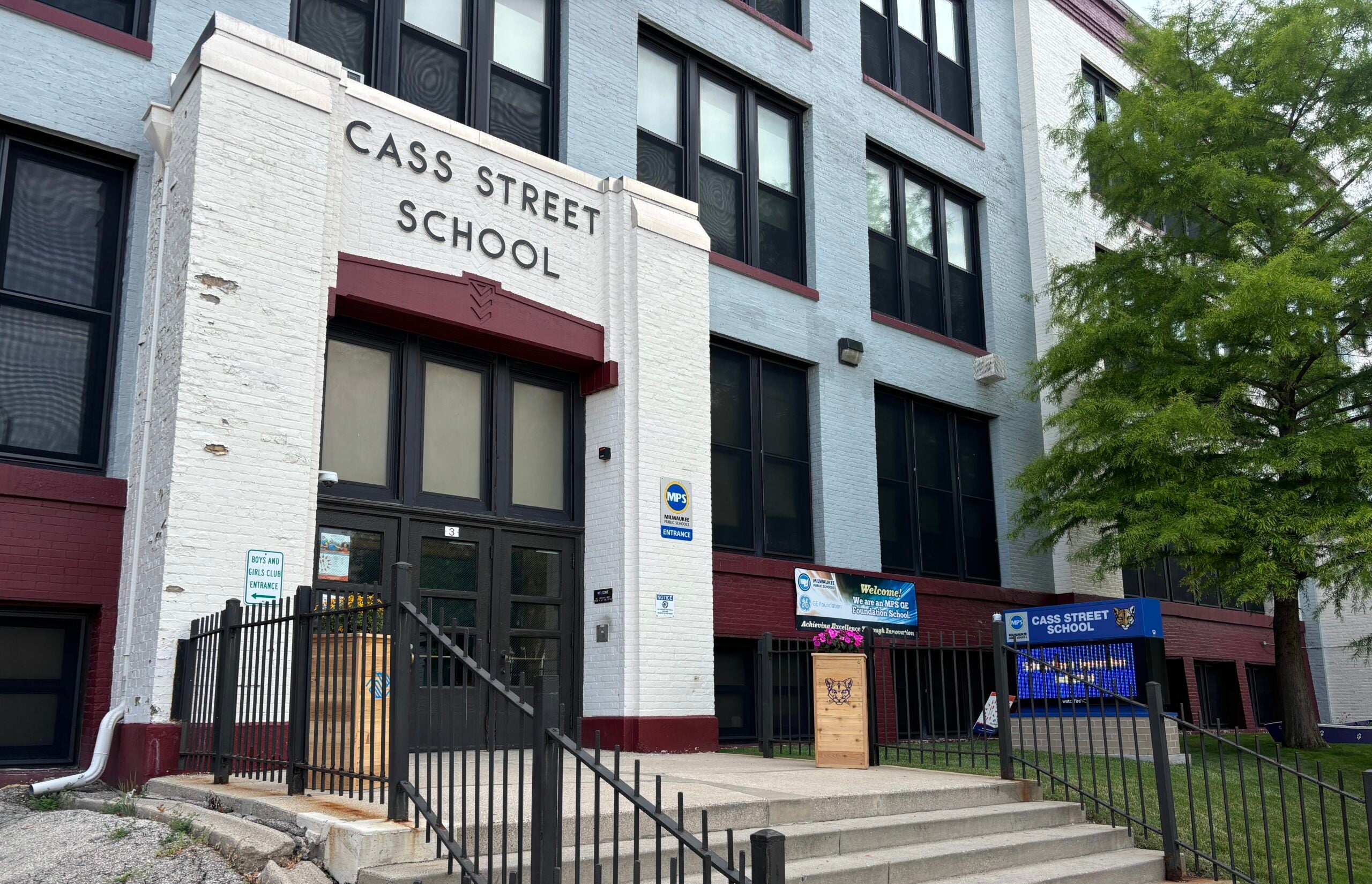As Wisconsin school districts continue to grapple with staff shortages, the Spooner Area School District is asking community members to help fill a “desperate need” for substitute teachers. State officials say the substitute teacher issue is a widespread challenge for districts.
On Nov. 30, Spooner Area School District Superintendent David Aslyn posted a community update video to Facebook. During the video, Aslyn thanked staff for their dedication to students and coworkers and put a special appeal for people in the Spooner area to serve as substitute teachers and other staff members across the district.
“The district is in desperate need of substitutes in teaching, support staff and custodial positions,” said Alsyn “This is a great way for people that have some time available to serve children and serve the community.”
News with a little more humanity
WPR’s “Wisconsin Today” newsletter keeps you connected to the state you love without feeling overwhelmed. No paywall. No agenda. No corporate filter.
Aslyn said those interested in becoming a temporary substitute teacher should contact the district for more information. WPR was unable to reach Aslyn for further comment on the appeal.
Susan Muenter is the executive director of the Wisconsin Association of School Personnel Administrators, which is an amalgam of more than 2,000 district human resources professionals, superintendents and business officers. Muenter told WPR there are teacher shortages across the board and with vacant substitute positions, in particular, other district staff like administrators sometimes fill in.
“We’re doing whatever we can to try and fill the vacancies that we have,” Muenter said. “Teachers are giving up their prep periods to cover for other staff members.”
In the past, Muenter said districts might have relied on people who had retired from teaching or those who weren’t able to find a job. She said that situation has reversed during the last couple of years, especially due to the COVID-19 pandemic.
“A lot of (teachers) retired because they didn’t want to deal with COVID or were concerned about it because they’re in a higher risk category due to their age or health conditions,” said Muenter. “And then, simply, they just are done and don’t necessarily want to continue teaching.”
Muenter said every business is facing staffing challenges and public schools are unable to offer salaries for teachers or substitutes that can compete with some private sector offerings. In 35 years of working in human resources, she said, “I’ve never seen an environment like this. I think it’s unprecedented.”
Another piece of the school staffing puzzle, said Muenter, is there have been more job openings for teachers than there have been graduates with teaching degrees.
According to the University of Wisconsin System Education Reports and Statistics website, there were 3,548 education related degrees conferred during the 2019-2020 school year. That’s up slightly from a record low of 2,766 education degrees conferred during the 2015-2016 school year.
Jennifer Kammerud is the director of Licensing Educator Advancement and Development at the Wisconsin Department of Public Instruction. She told WPR there are three types of substitute teaching licenses available, five-year licenses, three-year licenses and one-year licenses with stipulation.
Kammerud said people with a two-year, associates degree can get a substitute teaching license that allows them to fill a vacancy at any district for 45 days or less. Those with a four-year, bachelors degree can get a one-year license with stipulation, said Kammerud, which allows them to teach a class for an entire school year. She said those two groups give insights into how many vacancies districts have and which subject areas have the most need.
“We have always had shortages in Wisconsin,” said Kammerud. “Usually, though, they have been either geographic or subject area focused as they are today. However, the difference is that I’m hearing it from across the state, both in terms of the need for substitutes, but also teachers, especially teachers, in certain subject areas.”
Kammerud said special education fields, in particular, are experiencing a number of vacancies.
Data provided by DPI show there were 3,075 three-year substitute licenses issued in the 2018-2019 school year. That increased slightly to 3,476 during the 2020-2021 school year.
This year, DPI has issued 1,133 one-year teaching licenses with stipulations.
Wisconsin Public Radio, © Copyright 2025, Board of Regents of the University of Wisconsin System and Wisconsin Educational Communications Board.





